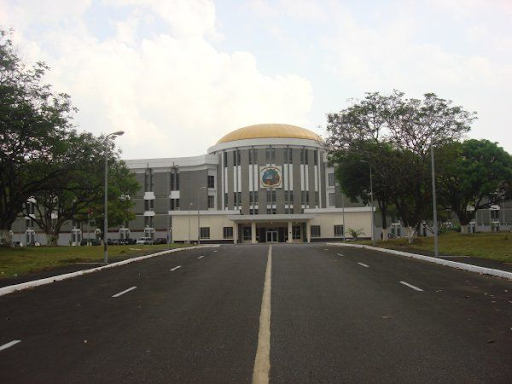Liberia: Senate to Cite LISGIS for Census Info

The Capitol building, Liberia.
The plenary of the Senate has asked its Committee on Autonomous Commission and Agencies to recite the authorities at the Liberia Institute of Statistics and Geo-Information Services (LISGIS) for discussion on the conduct of the long-awaited census.
The Committee, among other things, is calling LISGIS to discuss challenges that would require the Senate intervention in the conduct of the national census.
This year’s census will, among other things, assess population growth. Getting the count right will help ensure that the districts and counties would receive developmental packages and accurate and proportional representation in the House of Representatives.
LISGIS has so far received 21,000 tablets and power banks from the Ghana Statistical Service for the conduct of the main enumeration phase of the 2022 census. These equipment are intended for data collection which includes Installation of Maps, Geo-codes, and other important software.”
Since the last population Census in 2008, Liberia has not had another Census. The 2018 National Population and Housing Census was delayed to March 2022, due to the outbreak of the COVID-19 pandemic.
Before the coronavirus, the census was regularly postponed on grounds that LISGIS was having financial issues and, as such, it needed more time. Now, the June 19 postponement is the 5th deferment since the exercise was initially scheduled to take place in January 2018.
The first four modern censuses were held in 1962, 1974, 1984, and 2008 and revealed how the population had increased differently beginning at 1.1 million, 1.5, 2.1, and 3.5 million, respectively.
The lack of updated census data means Liberia has been operating on a population estimated at five million people — missing out on data that would help policymakers more accurately understand the prevailing economic and social conditions, as well as cultural characteristics within the country.
The Committee in a report yesterday to plenary, revealed that even though there is a basket fund created for the Census to be managed by the UNFPA, where financial contributions to the Census are lodged, US$8 million contributed by the World Bank is still being lodged with the Public Financial Management Unit (PFMU) at the Ministry of Finance and Development Planning.
Also, according to the Committee report, the budget for the Census nationwide is US$23.2 million, about US$16.6 million has been received by LISGIS and expended to procure materials for the pretest Census activities.
Additionally, the Committee mentioned that the Government of Liberia is expected to come forth with its direct budget support to LISGIS with a total payment of US$3.7 million.
Meanwhile, earlier data of the LISGIS mock census has revealed that
Liberia's population of children under 15 years of age is declining. The mock census data revealed that while the country's young population rate of children under 15 years of age appears lesser, the working population from ages 15 through 64 is higher. A country's younger population is defined as those people less than age 15 and the share of the dependent population is calculated as the total elderly and young population expressed as a ratio of the total population.
The dependency ratio relates the number of young persons that are likely to be dependent on the support of others for their daily needs to the number of those who are capable of providing such support.
LISGIS mock census data indicates that in the long term, the country may not have lots of potential workers for the future. But as things stand, the country would have a limited dependency rate in the long term, which means that there are not enough children reliant on a few adults to provide for their needs.
According to the LISGIS, the ‘young population’ indicates a ‘lower birth rate’ over some time and it is a sign that the population may be shrinking.
